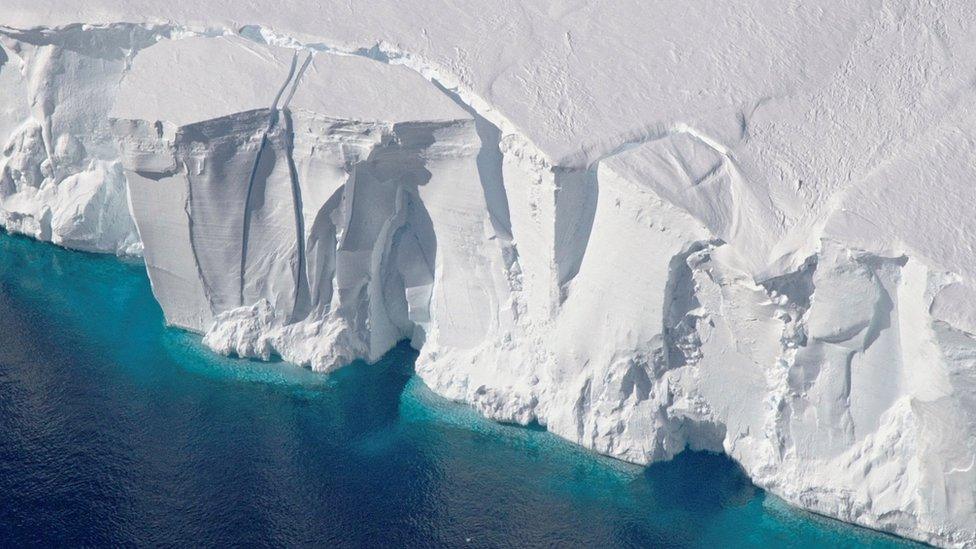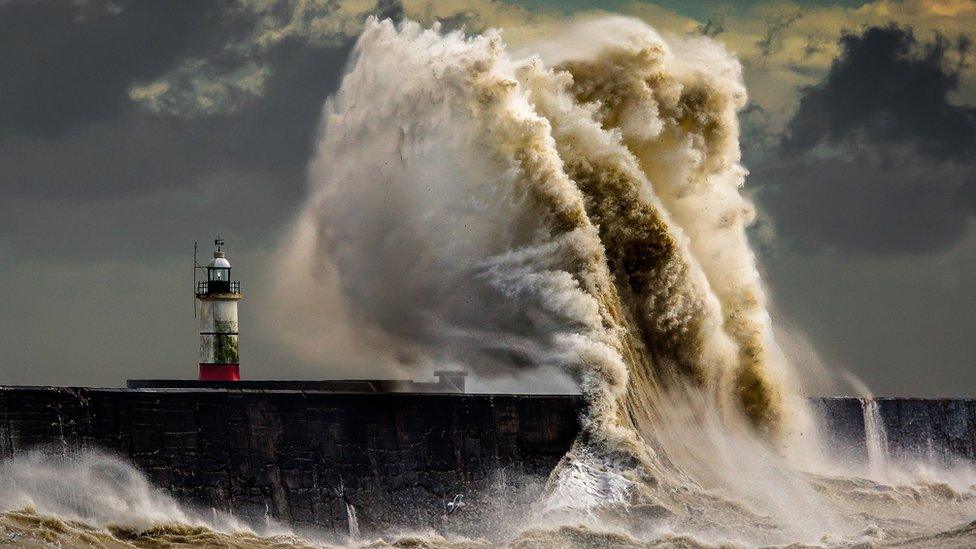Climate change experts warn 2023 will be hottest year on record
- Published

A very hot summer and autumn has led scientists to calculate 2023 will be the hottest year ever
Experts have calculated that 2023 is "virtually certain" to be the hottest ever year on record.
This comes after five months in a row of record-setting high temperatures.
July was so warm that it may have been the hottest month in 120,000 years, while average September temperatures smashed the previous record by a "gobsmacking" 0.5C.
The excessive heat is down to a number of things such as carbon emissions, that contribute to global warming, and a weather phenomenon called El Niño.

Ice caps can melt as a result of increasing global temperatures
El Niño makes global weather warmer
It happens when water in the Eastern Pacific ocean heats up more than normal, and creates unusually hot and stormy weather
El Niño is declared when the water warms up by half a degree Celsius higher than the long term average
The scientists who gathered the new data say the last two months of the year are very unlikely to have an impact on average figures for the year - even if they are very cold - because of how hot the rest of the year has been.
And the number of days that have been 1.5 degrees Celsius warmer than pre-industrial times has already reached a record high, even before the year has ended.
Scientists say the world is about one degree Celsius warmer than it was 300 years ago when the Industrial Revolution started and people began to work in factories
A very influential 2018 report by an international group of scientists said if the planet's temperature rose by more than 1.5 degrees Celsius, it would cause huge problems for the planet.
For example, melting ice in places like the Arctic and Antarctic would lead to a rise in the Earth's sea levels, flooding many coastal areas and islands.
Also, extreme weather like heatwaves, droughts and storms would happen more often and become more severe

Extreme weather like storms is likely to be more common because of climate change
The data was gathered by a number of different groups including Copernicus and US groups NOAA and Berkeley Earth.
"We really see no sign that this year's string of exceptional record-setting months is going away anytime soon," said Zeke Hausfather, a climate scientist at Berkeley Earth.
"And at this point, it makes it virtually certain in all the datasets that 2023 will be the warmest year on record. That's a greater than 99% chance," he told BBC News.
